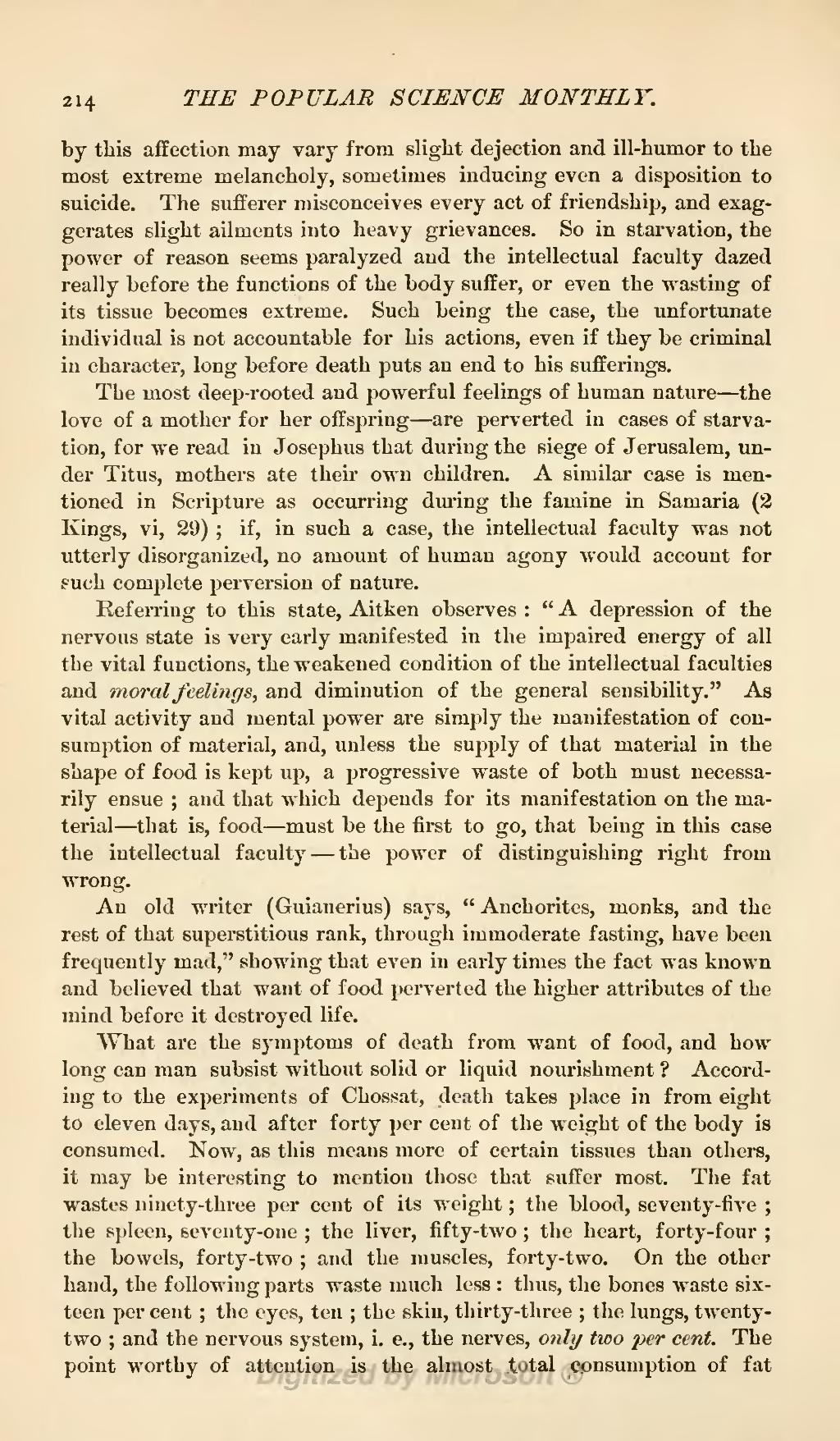by this affection may vary from slight dejection and ill-humor to the most extreme melancholy, sometimes inducing even a disposition to suicide. The sufferer misconceives every act of friendship, and exaggerates slight ailments into heavy grievances. So in starvation, the power of reason seems paralyzed and the intellectual faculty dazed really before the functions of the body suffer, or even the wasting of its tissue becomes extreme. Such being the case, the unfortunate individual is not accountable for his actions, even if they be criminal in character, long before death puts an end to his sufferings.
The most deep-rooted and powerful feelings of human nature—the love of a mother for her offspring—are perverted in cases of starvation, for we read in Josephus that during the siege of Jerusalem, under Titus, mothers ate their own children. A similar case is mentioned in Scripture as occurring during the famine in Samaria (2 Kings, vi, 29); if, in such a case, the intellectual faculty was not utterly disorganized, no amount of human agony would account for such complete perversion of nature.
Referring to this state, Aitken observes: "A depression of the nervous state is very early manifested in the impaired energy of all the vital functions, the weakened condition of the intellectual faculties and moral feelings, and diminution of the general sensibility." As vital activity and mental power are simply the manifestation of consumption of material, and, unless the supply of that material in the shape of food is kept up, a progressive waste of both must necessarily ensue; and that which depends for its manifestation on the material—that is, food—must be the first to go, that being in this case the intellectual faculty—the power of distinguishing right from wrong.
An old writer (Guianerius) says, "Anchorites, monks, and the rest of that superstitious rank, through immoderate fasting, have been frequently mad," showing that even in early times the fact was known and believed that want of food perverted the higher attributes of the mind before it destroyed life.
What are the symptoms of death from want of food, and how long can man subsist without solid or liquid nourishment? According to the experiments of Chossat, death takes place in from eight to eleven days, and after forty per cent of the weight of the body is consumed. Now, as this means more of certain tissues than others, it may be interesting to mention those that suffer most. The fat wastes ninety-three per cent of its weight; the blood, seventy-five; the spleen, seventy-one; the liver, fifty-two; the heart, forty-four; the bowels, forty-two; and the muscles, forty-two. On the other hand, the following parts waste much less: thus, the bones waste sixteen per cent; the eyes, ten; the skin, thirty-three; the lungs, twenty-two; and the nervous system, i, e., the nerves, only two per cent. The point worthy of attention is the almost total consumption of fat
